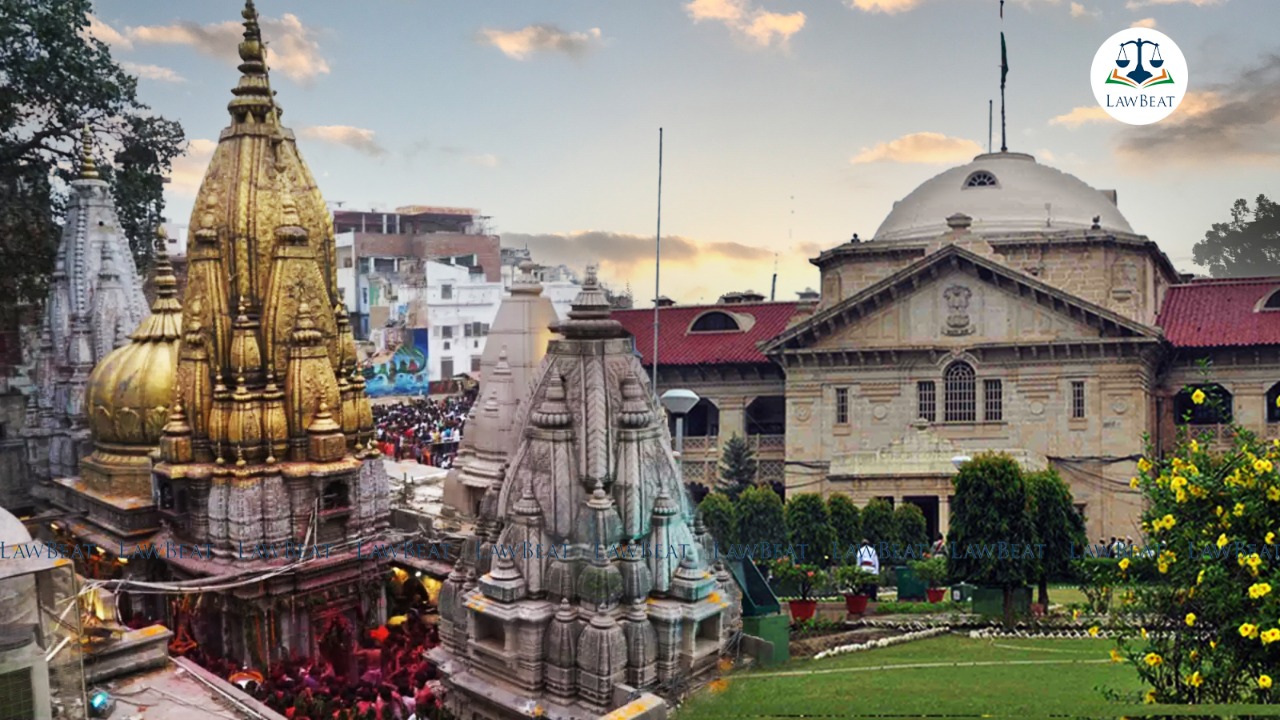Kashi Vishwanath-Gyanvapi dispute case(s)| 'Muslims never owned the property, no document to prove': Submissions before Allahabad HC

Advocate Vijay Shankar Rastogi, the court-appointed next-friend of the deity, is presenting his submissions to establish that the property in question, where presently Gyanvapi mosque stands, was the original temple site of the deity of Sri Kashi Vishwanath, Lord Vishweshwar and he is the only owner of it.
Advocate Vijay Shankar Rastogi, the court-appointed next-friend of Lord Vishweshwar, today submitted before the Allahabad High Court that the property, where presently Gyanvapi mosque stands, was never owned by Muslims. They do not have any document to prove their right over it and only linking it with 'Waqf property' they have asserted their right," he said.
In the ongoing hearing before the bench of Justice Prakash Padia, Adv. Rastogi argued that Aurangzeb never made the disputed land a waqf property. "He even collected 1/3rd tax from it," he said.
Rastogi added that "when Akbar (the #Mughal emperor) felt that he needed to build a fort here in Allahabad, he purchased land and even Aurangzeb purchased lands without associating those with Waqf property."
To further press his argument that the land in question is the land where original temple of Lord Vishweshwar, the diety of Kashi Vishwanath, was situated, Rastogi referred to the writings of a British Traveller who visited Varanasi, then known as Benares, a hundred and thirty five years after the Kashi Visveswara Temple was destroyed.
Rastogi said that he mentions that foundations of the Gyanvapi mosque were laid on a sacred spot, where a temple before stood, which was destroyed to make room for it. "He even gives details of the idols of other deity present at the property," Rastogi added.
Continuing his earlier submission that the final decree in Deed Mohammad’s suit in 1943 does not affect the fact that the disputed property belongs to Lord Vishweshwar himself since ancient times till now, Rastogi reiterated himself that the Hindus were not made party in that suit.
As per the final decree in Deed Mohammad’s suit, the disputed property belongs to Muslims and the mosque.
Rastogi submitted that the property has nowhere been described as Waqf property before the year 1936.
He further referred to Articles 294 (Succession to property, assets, rights, liabilities and obligations in certain cases from the commencement of this Constitution and) and 296 (Property accruing by escheat or lapse or as bona vacantia) of the Constitution of India to press his argument that the decision regarding the nature of a place of worship can be rectified.
However, Justice Padia interrupted him and said that all these submissions have already been made before the bench. He enquired Rastogi whether he has any other submission to make. Rastogi answered in affirmative.
Taking note of the same and due to paucity of time today, Court adjourned the hearing till Friday.
Background of the matter
Before the Varanasi local court, the Ancient Idol of Swayambhu Lord Vishweshwar and 5 others had filed a suit in 1991 seeking removal of the Gyanvapi Mosque and restoration of the land to Hindus. The proceedings in this suit before the local court have already been stayed by the high court.
The Anjuman Intezamiya Masajid Varanasi knocked on doors of the high court against the proceeding before the lower court in which an ASI survey had been ordered. The High Court has stayed the ASI survey.
A total of five matters involving the same issue have been clubbed by the high court and are being heard together.
Case Title: Anjuman Intezamiya Masajid Varanasi v. Ancient Idol Of Swayambhu Lord Vishweshwar And 5 Others and connected matters
